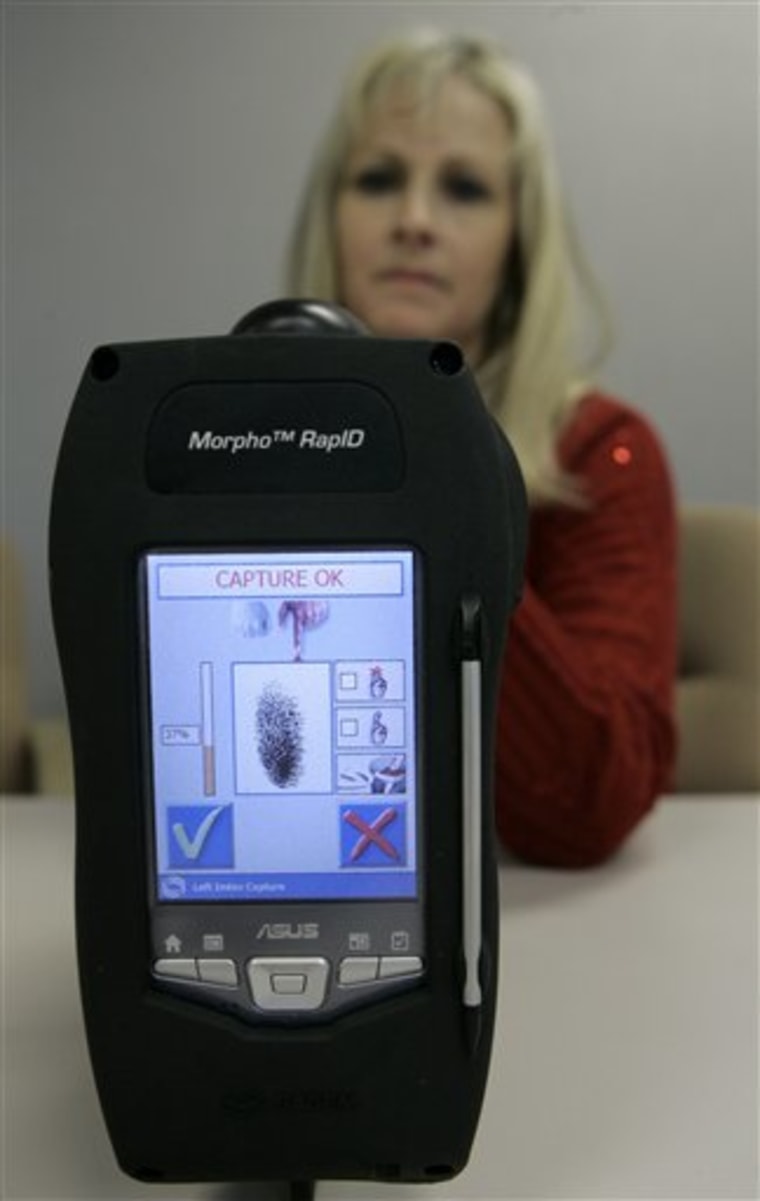With a quick imprint of a suspect's two fingers on a handheld device, Columbus police can get instant access to the person's identity without making a trip to the booking office.
The department announced this week it is testing 40 RapID wireless units it purchased recently for about $3,000 each using a federal Homeland Security grant.
Police say the new technology saves time by eliminating a trip to a downtown booking station. It typically would be used to check the identity of someone without proper ID who uses a name police suspect is not real.
A person might not necessarily be arrested as a result of the check, but could be issued a summons or citation depending on the reason he or she was questioned. The system checks the fingerprints against existing prints in a Columbus police database, which includes about 250,000 entries.
If there's a match, the officer will receive the person's real name, date of birth, gender and race at the scene.
Taking a suspect whose identity is questioned for fingerprinting can take more than an hour, a drawback on busy shifts when police are needed on the streets, said Beth Owens, project manager of the Columbus Police Department's Automated Fingerprint Identification System.
The new system, she said, "gets them back out on the street so they can answer more calls for service."
The city is testing 20 of the units over the next several months and providing the other 20 to suburban departments.
It will cost about $20 per month per unit for the cellular phone contracts used to operate the devices, which are made by Tacoma, Wash.-based Sagem Morpho Inc.
The use of biometric devices by law enforcement is expanding as the cost of the hardware needed to run the gadgets drops, said Bud Yanak, marketing vice president for Bio-Key International, a leading provider of software for mobile devices used by police departments.
The cost of fingerprint sensors alone has dropped from about $100 to about $5, Yanak said.
Devices like the RapID save police time and money, he said. "And in the end it saves their lives, because they don't let the bad guy go."
But civil liberties groups are keeping an eye on the technology. They're worried such devices could be used to harass people rather than make legitimate identity checks.
"When it's portable it's easier to abuse than if you actually have to get somebody arrested and taken down to the station," said Jeffrey Gamso, legal director of the Ohio chapter of the American Civil Liberties Union.
Owens said a positive match is only a first step for an officer using the device.
"I tell all the officers, 'If you have a hit, the most important thing for you to do is call and get that hit verified,'" she said.
